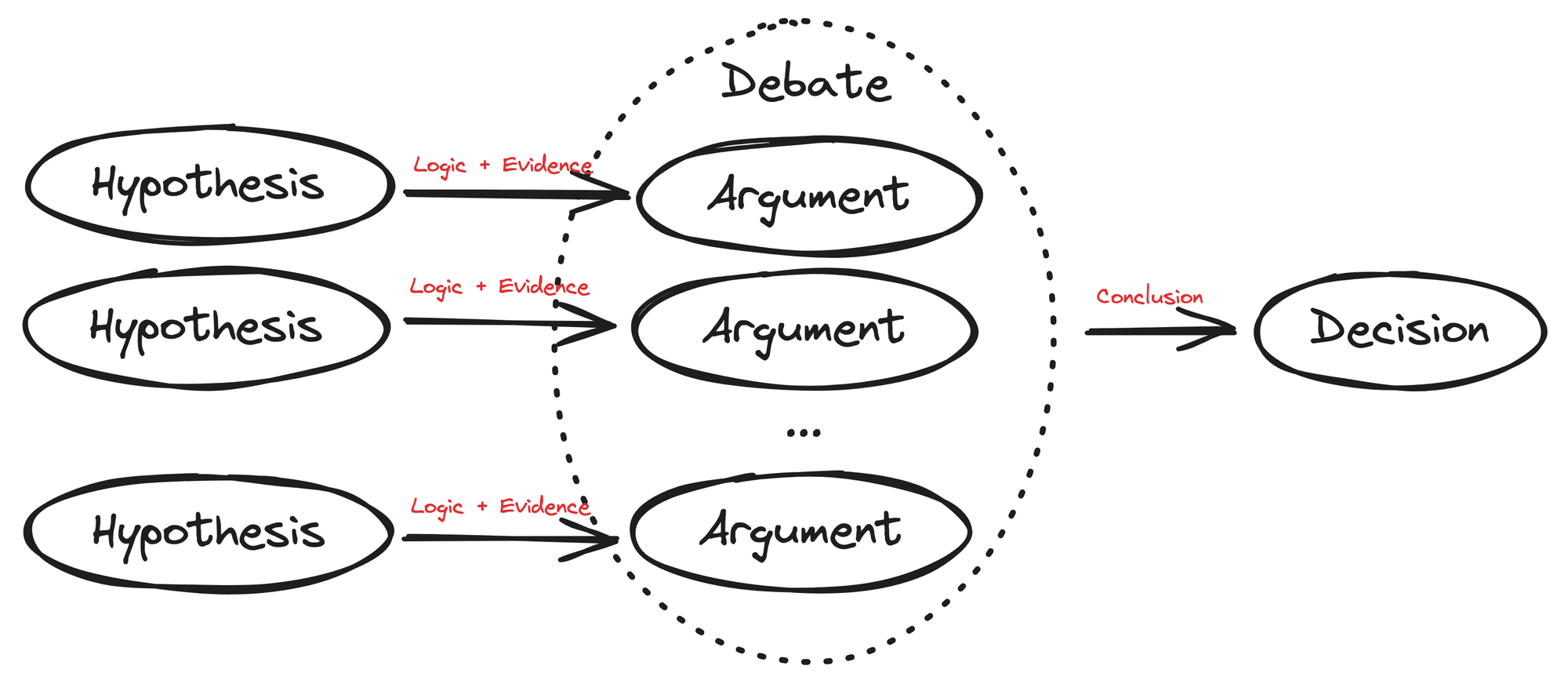What is research?

Let's begin by addressing the question: What is research? An excellent definition of research is provided by John W. Creswell, according to Wikipedia:
Another definition of research is given by John W. Creswell, who states that "research is a process of steps used to collect and analyze information to increase our understanding of a topic or issue". It consists of three steps: pose a question, collect data to answer the question, and present an answer to the question.
Questions are essentially hypotheses that need to be addressed after research has been conducted. If you were to compare research to constructing a building, these questions would serve as the foundation. The core logics that substantiate the hypotheses are akin to the cornerstones. Without them, how could a building be erected? Next, the data can be likened to the building's walls. Finally, you'd have a robust structure. It doesn't need to be ornate or sophisticated. It just needs to be solid and stable.
Thus, research is not merely an act of gathering information, but an act of formulating a more compelling argument. It represents the entire process of validating a hypothesis, which in the context of business, serves as a fundamental form of argumentation.

Businesses are undoubtedly driven to make informed decisions, and sound decisions emerge as conclusions from rigorous debates. It's important to note that a debate doesn't necessarily require multiple participants; contemplation is, in itself, a form of internal debate. Debates are essentially a series of arguments that should converge on a definitive conclusion. For a conclusion to be robust, the arguments preceding it must be cogent and well-reasoned.
Well then, how do you properly conduct research? In the next post, we'll be discussing the details of conducting great research. Meanwhile, at Pado, we're building ASQ, an AI-assisted research workspace.
ASQ
ASQ is more than just a search tool; it's an intelligent discussion partner, logic navigator, research assistant, and argument evaluator rolled into one. Imagine stating an opinion like "Nike is superior to Adidas" and having ASQ spring into action, dissecting arguments, evaluating evidence, and guiding you through a labyrinth of information with ease and precision. This innovative approach, powered by Pado's advanced LLM-based multi-agent system, aims to transform research from a strenuous task into an enlightening experience. It's an essential tool for consultants, attorneys, accountants, analysts, and many other professionals who seek to make informed decisions without the traditional hassle of research.


